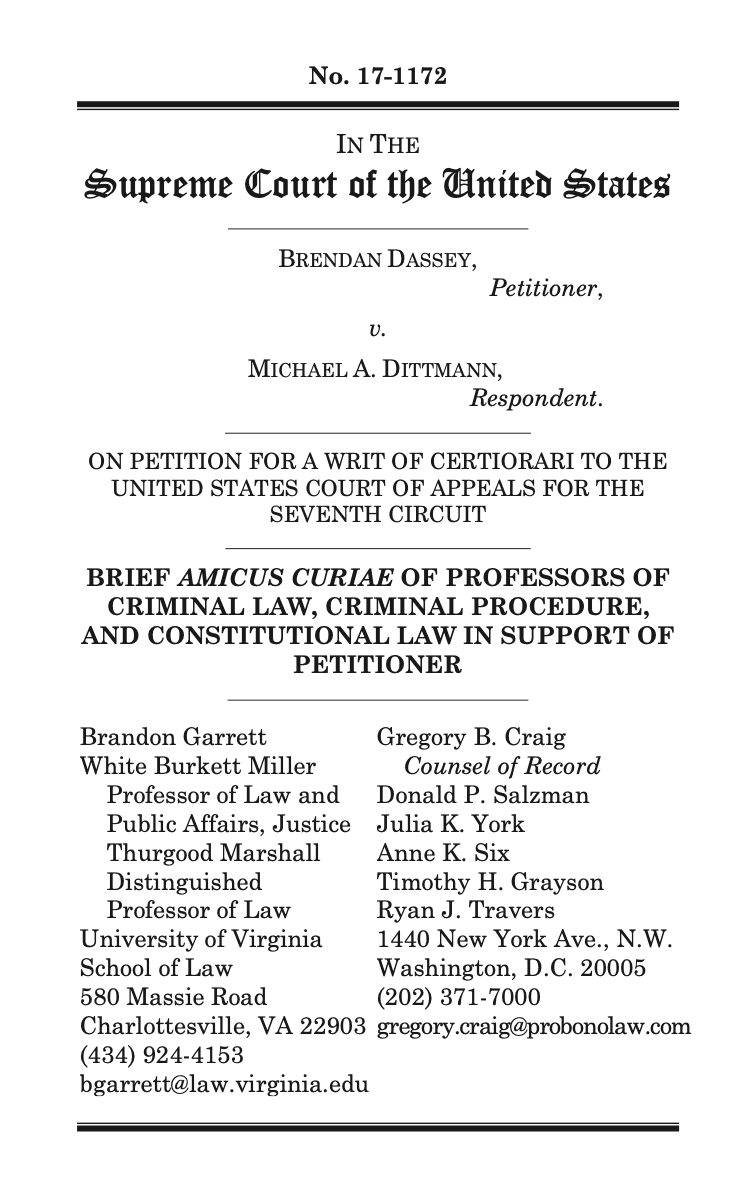
Summary of Argument
This Court has long recognized that coerced confessions are antithetical to our accusatorial system. Indeed, this Court’s precedents—rooted in longstanding common law traditions—reflect an abhorrence of confessions coercively wrung from vulnerable suspects. Over the past century, the Court adopted a totality-of-the-circumstances approach to assessing voluntariness of confessions, which examines both the characteristics of the accused and the details of the interrogation. Withrow v. Williams, 507 U.S. 680, 693 (1993); Schneckloth v. Bustamonte, 412 U.S. 218, 226 (1973). In applying this test, “th[e] Court has recognized that coercion can be mental as well as physical, and that the blood of the accused is not the only hallmark of an unconstitutional inquisition.” Blackburn v. Alabama, 361 U.S. 199, 206 (1960). Further, the Court has clearly instructed that the propriety of police techniques must be viewed in terms of their effect on the particular suspect in question. See, e.g., Miller v. Fenton, 474 U.S. 104, 116 (1985). The Court has repeatedly recognized that certain categories of suspects are particularly vulnerable to police coercion, including children, see, e.g., In re Gault, 387 U.S. 1, 45 (1966), and those with intellectual impairments, see, e.g., Fikes v. Alabama, 352 U.S. 191, 196-97 (1957). Indeed, the Court has clearly mandated that “special care” be used in assessing the voluntariness of a juvenile confession. Gallegos v. Colorado, 370 U.S. 49, 53 (1962); see also Gault, 387 U.S. at 45, 55. Careful attention to the impact of the police techniques on the particular suspect effectuates key principles undergirding the Fifth Amendment and Fourteenth Amendment totality-of-the-circumstances test, namely that: (1) psychological coercion can manipulate suspects; (2) juvenile confessions must be reviewed with “special care”; (3) the suspect’s intellectual challenges must be taken into account in a voluntariness review; and (4) when facts are disclosed to suspects, that contamination raises still greater reliability concerns, particularly in confessions involving psychological coercion, juveniles, or those with intellectual challenges. In this case, both the court below and the Wisconsin Court of Appeals made grave doctrinal errors in applying this Court’s longstanding precedent. The circuit court below saw clear evidence of psychological coercion—e.g., the “leading and suggestive” nature of the questioning, the “broad assurances” from police that “honesty would produce leniency,” the “guesses” that petitioner had offered when investigators were not satisfied with his responses, and the nonpublic facts that investigators “blurted out” when they “lost patience,” which petitioner then adopted, Dassey v. Dittmann, 877 F.3d 297, 301, 308, 312 (7th Cir. 2017) (en banc)—but discounted it because “Dassey was not subject to physical coercion.” Id. at 313. That ignores—or, at best, clearly misapplies—the well-established law holding “that coercion can be mental as well as physical.” Blackburn, 361 U.S. at 206; see also Spano v. New York, 360 U.S. 315, 321-24 (1959). In addition, the court below failed to apply “special care” in determining whether the police techniques “as applied to this suspect, are compatible with a system that presumes innocence and assures that a conviction will not be secured by inquisitorial means,” Miller, 474 U.S. at 116, and that asks whether the suspect’s will was in fact overborne. Spano, 360 U.S. at 321-24; see also Lynumn v. Illinois, 372 U.S. 528, 534 (1963). The defendant here was a sixteen-year-old juvenile at the time he confessed. He is borderline intellectually disabled and extremely suggestible. He lacked prior experience with law enforcement and was alone with the police—without parent or lawyer—when making his most inculpatory statements. Merely acknowledging these factors, without paying “close attention to the individual’s state of mind and capacity for effective choice,” Miranda v. Arizona, 384 U.S. 436, 507 (1966) (Harlan, J., dissenting) (citing Gallegos, 370 U.S. 49), simply does not amount to “special care.” Yet, in its voluntariness analysis the court below paid mere lip-service to the import of experienced detectives feeding facts to Brendan Dassey and the impact of those leading and suggestive questions on him. The sections that follow provide a historical overview of this Court’s voluntariness case law, followed by exposition of the errors committed by the court below, and of the divergent approaches taken by other lower courts. In short: This case provides an opportunity for this Court to correct recurring departures from the clearly established voluntariness standard, which forms a bedrock protection against coercive interrogation methods that are anathema to our criminal justice system.